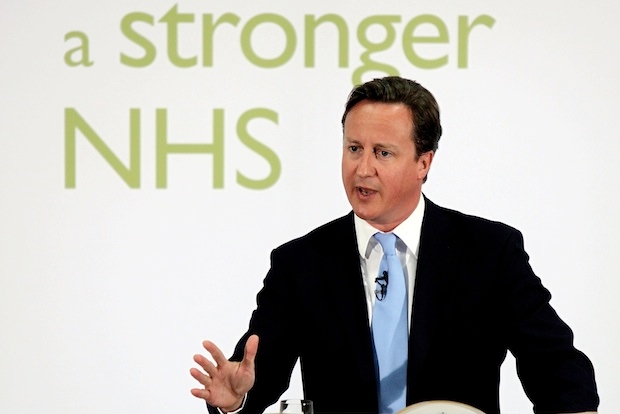There’s an interesting bit in the first chapter of Think Like a Freak, (Allen Lane, £12.99), from the Freakonomics duo, Steven D Levitt and Stephen J Dubner in which the two Steves get to meet David Cameron and a few dozen of the team just before he takes office. They are there to do what freethinkers do, viz, cut through the guff and muddled thinking that surrounds the big issues.
Well, I can tell you for free that Mr Cameron is unlikely to sue for his name check. They observe breathlessly that “everything about him radiated competence and confidence. He looked to be exactly the sort of man whom deans at Eton and Oxford envision when they are first handed the boy.” Trouble is, the meeting soured early on when Mr C told them, moist eyed, that there were a few things he would be saving from cuts. Like what, they asked. “‘Well, the National Health Service,’ he said, his eyes alight with pride.”
Yes, that is how they write.
Well, it takes them no time to identify the difficulty with that one: “UK health costs had more than doubled over the previous ten years” and, as they observe, “when people do not pay the true costs of something they tend to consume it inefficiently. Think of the last time you sat down at an all you can eat restaurant. How likely were you to eat a bit more than normal? The same thing happens if health care is distributed in a similar fashion.” To make the analogy clear for Mr C, they ask him to imagine “what if, for instance, every Briton were also entitled to a free, unlimited lifetime supply of transportation. That is, what if everyone were allowed to go down to the car dealership whenever they wanted and pick out any new model, free of charge.” Well, that went down a bomb. The smile, they observe, stayed on Mr C’s face but went out of his eyes before he made off.
Now, as the Guardian reviewer of the book said, the analogy is a bit absurd. You do not consume health services like cars. You do not get a consumerist kick out of going to a hospital. Yet the argument is not wholly silly, that if you do not have to pay anything at all for a service, you treat it very differently than if you do. The current argument about whether to charge patients for appointments is based on exactly this premise. But what this little episode makes clear is just how sacred were the sacred cows when Mr Cameron took office. And they have made life very difficult for every other area of government ever since.
There is another interesting episode, before Mr Cameron actually arrives, when the two Steves meet the team, a couple of dozen advisers in their twenties and thirties. One man, however, stood out, “a gentleman, a once and future cabinet minister, significantly more senior… He told us that, upon election, the Cameron administration would fight global warming, tooth and nail…’If it were not for England,’ he continued, ‘the world would not be in the state it is in.’…England, he said, having started the Industrial Revolution, led the rest of the world down the path toward pollution, environmental degradation and global warming. It was therefore England’s obligation to take the lead in undoing the damage.”
Well, three guesses who that might have been. But it’s striking in retrospect; this revelation about the kind of thinking that underlay the Tories’ philosophy in those first heady days in office. If Tory cabinet ministers really did think that England owes the world an historic debt by dint of being the first to industrialise, it sets in context what has followed and the ideology that has invested energy policy in both bits of the Coalition until very recently.
The Freakonomics duo may be tone deaf when it comes to the nuances of British political life, but in identifying this exchange as an instance of alarming dogmatism, they are, in fact, dead right.







Comments